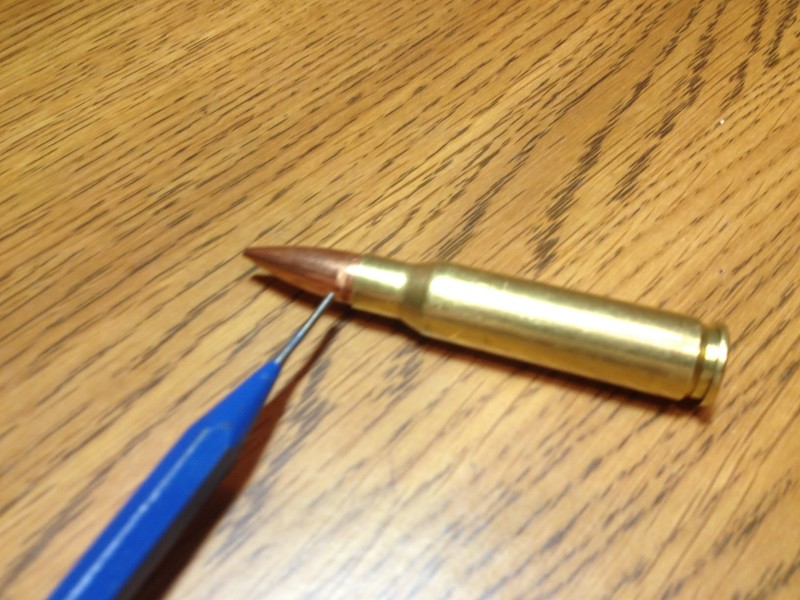So instead of doing a barrel break-in on my Ruger PR ( 308 ) I went ahead and shot about 100rds though it over three different range trips with the last one shooting about 60rds .
I figured it should be pretty dirty so I cleaned it last night . First with Hoppe's real good then a bunch of dry patches . After that I started running some shooters choice copper remover . First with a plastic bore brush soaked in the cleaner then let it sit a bit . Then I ran dry patches through it . Running one wet patch to every three or four dry patches . Not one patch came out green with almost all coming out pretty clean except a few streaks of brown . I kept getting those brown streaks to the end or 20+ patches until I realized it was the patch dragging across the dirty muzzle brake causing the light brown streaks . I then did a final CLP wet patch followed by several dry patches and they all came out very clean ( except for those darn streaks )
All that may sound like a lot of cleaning but really very early in the process it appeared the rifle was already clean . I just kept running patches expecting them to finally break loose some fouling but that never happened .
Anyways this rifle cleaned up faster then any other I had cleaned before . Granted most of my rifles have 1k rounds plus though they ( with many cleanings included ) but still I really expected to be running that copper cleaner for a good while . Is there something about how the RPR is made or is it just the low round count that allowed it to clean up so quickly ?
I'll add something that I did notice last night . All brushes and patches ran through the bore very smoothly . I use a one piece carbon fiber cleaning rod and I can generally feel things when cleaning a bore . This one was smooth as silk . There was something that was just effortless and even about how everything glided down the bore .
I figured it should be pretty dirty so I cleaned it last night . First with Hoppe's real good then a bunch of dry patches . After that I started running some shooters choice copper remover . First with a plastic bore brush soaked in the cleaner then let it sit a bit . Then I ran dry patches through it . Running one wet patch to every three or four dry patches . Not one patch came out green with almost all coming out pretty clean except a few streaks of brown . I kept getting those brown streaks to the end or 20+ patches until I realized it was the patch dragging across the dirty muzzle brake causing the light brown streaks . I then did a final CLP wet patch followed by several dry patches and they all came out very clean ( except for those darn streaks )
All that may sound like a lot of cleaning but really very early in the process it appeared the rifle was already clean . I just kept running patches expecting them to finally break loose some fouling but that never happened .
Anyways this rifle cleaned up faster then any other I had cleaned before . Granted most of my rifles have 1k rounds plus though they ( with many cleanings included ) but still I really expected to be running that copper cleaner for a good while . Is there something about how the RPR is made or is it just the low round count that allowed it to clean up so quickly ?
I'll add something that I did notice last night . All brushes and patches ran through the bore very smoothly . I use a one piece carbon fiber cleaning rod and I can generally feel things when cleaning a bore . This one was smooth as silk . There was something that was just effortless and even about how everything glided down the bore .
Last edited:

